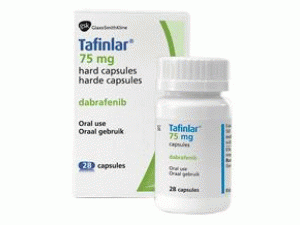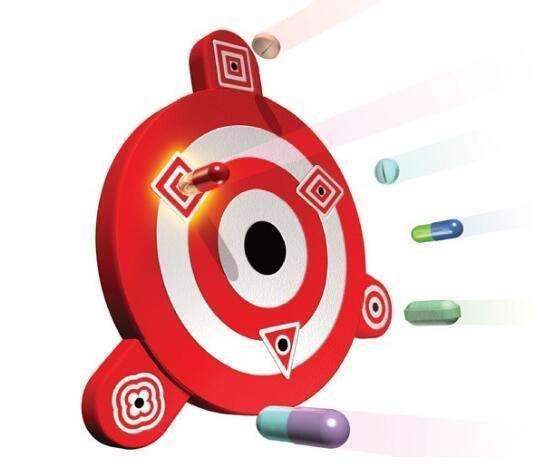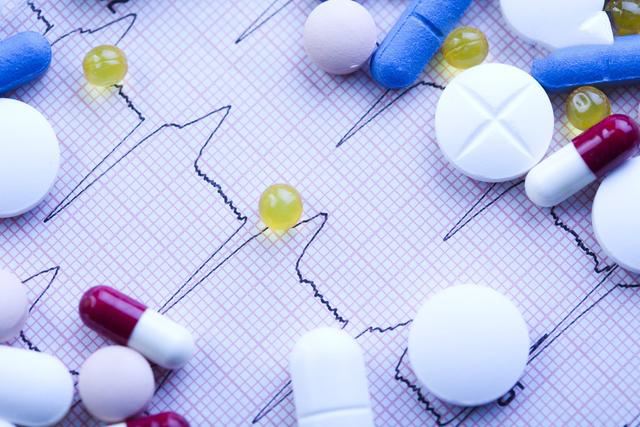达拉菲尼硬胶囊Dabrafenib(Tafinlar hard Capsules 50mg)
 产地国家:英国
处方药:是
所属类别: 50毫克/粒 28粒/瓶
包装规格: 50毫克/粒 28粒/瓶
计价单位:瓶
生产厂家英文名:Novartis Pharmaceuticals
原产地英文商品名:TAFINLAR hard capsules 50MG/Capsules 28Capsules/box
原产地英文药品名:DABRAFENIB MESYLATE
中文参考商品译名:TAFINLAR硬胶囊 50毫克/粒 28粒/瓶
中文参考药品译名:甲磺酸达拉菲尼
产地国家:英国
处方药:是
所属类别: 50毫克/粒 28粒/瓶
包装规格: 50毫克/粒 28粒/瓶
计价单位:瓶
生产厂家英文名:Novartis Pharmaceuticals
原产地英文商品名:TAFINLAR hard capsules 50MG/Capsules 28Capsules/box
原产地英文药品名:DABRAFENIB MESYLATE
中文参考商品译名:TAFINLAR硬胶囊 50毫克/粒 28粒/瓶
中文参考药品译名:甲磺酸达拉菲尼
简介:
部份中文甲磺酸达拉菲尼处方资料(仅供参考) 药品名称:甲磺酸达拉菲尼 商品名:Tafinlar 规格:胶囊剂50mg 75mg 适应症:不可切除或已经转移的BRAF V600E基因突变型黑色素瘤,不适用于BRAF野生型黑色素瘤 用法用量:(1)开始用TAFINLAR治疗前确证在肿瘤标本中存在BRAF V600E突变.(2)剂量是150mg口服每天2次在进餐前至少1小时或后至少2小时服用.丢失剂量可在下一次剂量前6小时服用.不要打开.压碎.或破坏TAFINLAR胶囊 作用机理:BRAF V600E突变会激活MEK1和MEK2,Trametinib能抑制MEK1和MEK2激酶,阻止BRAF V600突变型黑色素瘤细胞的生长。 特点及上市:2013年9月3日,黑色素瘤新药Tafinlar(dabrafenib)已获欧盟委员会(EC)批准,作为一种口服靶向药物,用于携带BRAF V600E突变的手术不可切除性黑色素瘤或转移性黑色素瘤成人患者的治疗。Dabrafenib是一种激酶抑制剂,靶向于BRAF蛋白,这是机体内一个生物信号通路中的关键元件,该信号通路调节细胞的正常生长和死亡,包括皮肤细胞。今年5月,Tafinlar及另一种黑色素瘤新药Mekinist(trametinib)均获得了FDA的批准。 Tafinlar为BRAF抑制剂,作为一种单药口服胶囊,适用于携带BRAF V600E突变的手术不可切除性黑色素瘤或转移性黑色素瘤成人患者的治疗。Mekinist为首个MEK抑制剂,作为一种单药口服片剂,适用于携带BRAF V600E或V600K突变的手术不可切除性黑色素瘤或转移性黑色素瘤成人患者的治疗。转移性黑色素瘤中,约有一半携带BRAF突变,该异常突变能促使黑色素瘤生长和扩散,其中BRAF V600E突变约占转移性黑色素瘤所有BRAF V600突变的85%,BRAF V600K突变约占转移性黑色素瘤所有BRAF V600突变的10%。英文版说明书:
Tafinlar(dabrafenib mesilate)What dabrafenib isDabrafenib is a type of biological therapy drug called a cancer growth blocker. It is also known by its brand name Tafinlar.Dabrafenib is a treatment for people with melanoma skin cancer that has spread to other parts of the body or can't be removed with surgery.How debrafenib worksAbout half of all melanoma skin cancers make too much BRAF protein due to a change in the BRAF gene. The BRAF protein makes cells grow and divide. Debrafenib stops cells producing the BRAF protein so this treatment can slow or stop the growth of the cancer.Dabrafenib only works for people who have a change in the BRAF gene. Your doctor will take samples of the melanoma to see whether this treatment is suitable for you.How you have dabrafenibDabrafenib comes as tablets. You take them twice a day, 12 hours apart. The normal dose is two tablets. You shouldn't take dabrafenib with food. After taking dabrafenib you should wait at least 1 hour before you eat. If you are taking it after eating you must wait at least 2 hours before you take it. Swallow the tablets whole with a glass of water. Don't crush or chew them.It is very important that you take tablets according to the instructions your doctor or pharmacist gives you. For example, whether you have a full or empty stomach can affect how much of a drug gets into your bloodstream. You should take the right dose, not more or less. And never stop taking a cancer drug without talking to your specialist first.You usually carry on taking dabrafenib for as long as it works. You may have it in combination with another cancer drug called trametinib.If you forget to take dabrafenib, take it as soon as you remember if it is less than 6 hours late. If it is more than 6 hours late, skip that dose and take your next dose at the usual time.If you take more dabrafenib than you should, contact your doctor, nurse or pharmacist for advice straight away.Tests during treatmentYou have blood tests before starting treatment and regularly during your treatment. The tests check your levels of blood cells and other substances in the blood. They also check how well your liver and kidneys are working.Your doctor will check your eyes regularly while you are having this treatment. They will check your skin every month during treatment and for 6 months afterwards.You may also have CT scans to check your head, neck, mouth and lymph glands. Women have genital examinations before and after treatment and men and women have examinations of the skin around the back passage (anus).About side effectsWe've listed the side effects associated with dabrafenib. You can use the links to find out more about each side effect. Where there is no link, please go to our information about cancer drug side effects or use the search box at the top of the page.You may have a few side effects. They may be mild or more severe. A side effect may get better or worse through your course of treatment. Or more side effects may develop as the course goes on. This depends onHow many times you've had the drug beforeYour general healthThe amount of the drug you have (the dose)The side effects may be different if you are having dabrafenib with other medicines.Tell your doctor or nurse straight away if any of the side effects get severe.Common side effectsMore than 10 in every 100 people have one or more of these side effects.Skin changes – this may include a rash or red, dry, itchy skin or small wart like growthsSoreness, redness and peeling on the palms of the hands and soles of the feet (palmar-planter syndrome), which may cause tingling, numbness, pain and drynessSkin thickeningHeadachesFeeling or being sick – this is usually well controlled with anti sickness medicinesDiarrhoea – drink plenty of fluids and tell your doctor or nurse if you are worried or if the diarrhoea continues for more than a couple of daysLoss of appetiteFeeling weak and low in energyA raised temperature (fever)Joint pain, muscle pain or pain in your hands and feetA coughEyesight changes – don't drive or operate machinery if you have eyesight changes such as blurred visionHair loss or thinningTiredness during and after treatmentLoss of fertility – you may not be able to become pregnant or father a child after having this treatment. Talk to your doctor before starting your treatment if you think you will want to have a baby in the future. Men may be able to store sperm before starting treatmentOccasional side effectsBetween 1 and 10 in every 100 people have one or more of these side effects.Constipation – your doctor or nurse may give you medicines to help prevent this but tell them if you are constipated for more than 3 daysFlu like symptoms – you may have fever, chills and muscle aches but taking paracetamol can helpRaised blood sugar levels – you may not have any symptoms from this but you will have regular blood tests to check the levelsChanges to your heart and how it pumps blood around your body – your doctor will check your heart before and after your treatment. Tell them if you can feel your heart pounding or beating irregularly, or if you feel dizzy or lightheaded, or have breathlessness or swollen legsNew skin cancers, including squamous cell cancers, basal cell cancers and new melanomas – let your doctor know if you notice any skin changesChanges in your blood chemistry – the levels of phosphorus in your blood may be higher than normal. You won't usually have any symptoms from thisBleeding into the brain, stomach or bowel – tell your nurse or doctor straight away if you have sudden headaches, dizziness, feel unwell, dark poo, blood in your urine, stomach pains or if you cough up bloodRare side effectsFewer than 1 in 100 people have these side effects.Kidney changes that are mild and unlikely to cause symptoms – they will almost certainly go back to normal when treatment is finishedStomach pain caused by inflammation of your pancreas (pancreatitis) – let your doctor know if you have strong abdominal painsEye problems, including blurred vision, redness, irritation, pain, floating spots before your eyes and sensitivity to light – let your doctor or nurse know if you have any of theseImportant points to rememberTalk to your doctor, pharmacist or nurse about all your side effects so that they can help you manage them. They can give you advice or reassure you. Your nurse will give you a contact number to ring if you have any questions or problems. If in doubt, call them.Other medicinesTell your doctor about any other medicines you are taking, including vitamins, herbal supplements and over the counter remedies. Some drugs can react together.Contraception and pregnancyThis drug may harm a developing baby. It is not advisable to become pregnant or father a child during treatment. It is important to use reliable contraception while having the drug and for one month afterwards. Talk to your doctor or nurse about contraception before starting treatment.BreastfeedingDon't breastfeed during this treatment because the drug may come through the breast milk.ImmunisationsYou should not have immunisations with live vaccines while you are having treatment or for at least 6 months afterwards. In the UK, these include rubella, mumps, measles (usually given together as MMR), BCG, yellow fever and Zostavax (shingles vaccine).You can have other vaccines, but they may not give you as much protection as usual until your immune system has fully recovered from your treatment. It is safe to have the flu vaccine.It is safe for you to be in contact with other people who've had live vaccines as injections. There can be problems with vaccines you take by mouth (oral vaccines) but not many people in the UK have these now. So there is usually no problem in being with any baby or child who has recently had any vaccination in the UK. You might need to make sure that you aren't in contact with anyone who has had oral polio, cholera or typhoid vaccination recently, particularly if you live abroad用药温馨提示:当您服用此药物时,需定期接受医疗专业人士的检查,以便随时针对其药效、副作用等情况进行监测。本网站所包含的信息旨在为患者提供帮助,不能代替医学建议和治疗。
药品价格查询,专业药品查询网站,药品说明书查询,药品比价 » 达拉菲尼硬胶囊Dabrafenib(Tafinlar hard Capsules 50mg)
药品价格查询,专业药品查询网站,药品说明书查询,药品比价 » 达拉菲尼硬胶囊Dabrafenib(Tafinlar hard Capsules 50mg)




